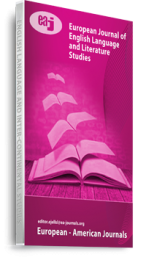Post- colonial theory has always been one of the most attractive academic fields of study since Indian sub-continent got freedom from colonization. The concept “subaltern” is the offspring of post-colonial situation that have triggered piles and piles of literature. With the advantage of socio-economic condition, the definition as well attributes associated to the term “subaltern” has altered a lot. Being a conscious writer, Arundhati Roy has concentrated her second fiction The Ministry of Utmost Happiness as a camouflage of contemporary socio-political problems that are relevant to the study of “subaltern”, specifically in South- Asian context. The novel is literally about everybody and everything happening in rapidly changing India, particularly about displaced and marginalized ones as the book is dedicated to “The Unconsoled”. Through the protagonist or the main character of novel, transgender issue was evoked. Other ongoing problems like gender discrimination, caste inequality, capitalism and many more socio-political facts were equally addressed. Arundhati Roy is an active activist and has a prolific career with books on capitalism, globalization and democracy. Thus The Ministry of Utmost Happiness is undoubtedly and instinctively an outburst of author’s observation of the “The New Subaltern” who are the victim of social and political unfair. So, this paper aims at examining Roy’s depiction of “The New Subaltern” in a setting of democratic India through her characters framing them into post-colonial situation. As the study of subaltern is ever-changing, this articles also attempts to trace the development of the subaltern study in south Asia.Contribution/originality: This article impart a new dimension to the ‘Subaltern Studies’, in broad post- colonial literature studies by demonstrating Roy’s perception of the new subaltern in presenting her novel The Ministry of Utmost Happiness. This also scrutinizes the novel in terms of its characters, language and socio-political context presented by author.
Keywords: Transgender, caste problem, socio-political unfair., the new subaltern, third world women

